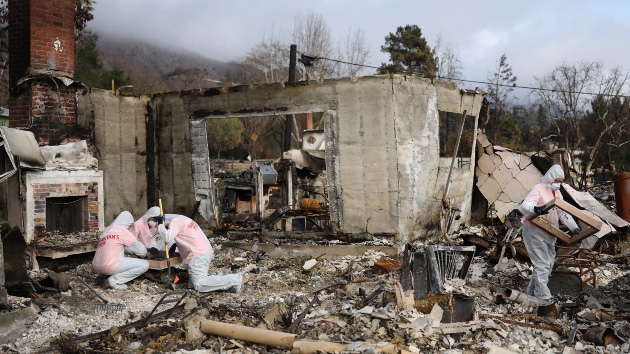Supreme Court likely to let candidates more freely challenge state election laws
Written by ABC Audio. All rights reserved. on October 8, 2025
(WASHINGTON) — A majority of the Supreme Court signaled on Wednesday that it would allow candidates for federal office to more freely challenge state elections laws without having to prove that the rules would significantly harm their chance of winning.
The case has the potential to clear the way for a wave of legal challenges ahead of the midterm elections at a time when many Republicans and allies of President Donald Trump hope to roll back laws that allow the counting of late-arriving mail-in ballots and other voter accommodations.
During oral arguments on Wednesday in a lawsuit brought by Illinois Congressman Michael Bost, the justices appeared open to letting him contest a state law that allows the counting of mail-in ballots up to 14 days after voting ends, provided they were postmarked on or before election day.
Bost’s lawsuit was originally thrown out after a federal district and appeals court concluded he lacked a large-enough stake in the election to establish a right to bring a lawsuit. The eight-term Republican won 75% of the vote in 2022 and 74% in 2024.
To bring a lawsuit in federal court, a plaintiff generally needs to establish that a particular action injures them, that the action stemmed from the person he or she is suing, and that the court’s solution would resolve the harm.
Bost’s attorney Paul Clement argued before the justices that candidates – regardless of the outcome – are not “mere bystanders” in an election and spend “untold time and energy” on their campaigns, giving them a concrete interest in accurate vote tallies.
“If the campaign is going to be two weeks longer, you’ve got to keep the campaign staff together for two weeks longer, and that’s going to be more expensive,” Clement argued.
Preventing Bost’s lawsuit from moving forward, Clement argued, would turn the “federal courts into federal prognosticators.”
All of the Court’s conservative members appeared receptive to Clement’s argument, and even some of the Court’s liberal justices signaled a willingness to embrace a middle ground advocated by the Trump administration.
“Let me ask about the pocketbook injury,” Justice Samuel Alito said of Bost’s right to sue. “Why isn’t that straightforward?”
Alito also suggested that a difference in a vote count from the contested ballots would also be sufficient basis to bring a case. “Isn’t a smaller margin of victory an injury in fact?” he asked Illinois Solicitor General Jane Notz, who was defending the law.
“Unless it’s coupled with something else, a smaller margin of victory has no real-world consequence,” Notz said.
Justice Brett Kavanaugh voiced concern about steering more election law challenges until after an election which could in turn disenfranchise voters and create “chaos.”
“So let’s say the losing candidate sues, challenging this rule…and the Court, post-election, finds it illegal. We faced this in 2020 in some of our many cases pre-election,” Kavanaugh asked. “What’s the remedy?”
Chief Justice John Roberts echoed similar concerns that curtailing lawsuits based on a more stringent view of candidate standing would result in lawsuits being filed closer to elections during the “most fraught time to be involved in politics.”
“What you’re sketching out for us is a potential disaster,” he said.
Justice Elena Kagan seemed open to a middle ground that could allow Bost to pursue his case without automatically setting a precedent that would give standing to any candidate who wants to challenge any election rule for any reason.
She suggested that the Court could require a candidate to claim “substantial risk” that a new election law would put him or her at an “electoral disadvantage” compared to the old rule.
“What you have is a voting rule that harms somebody relative to what’s come before,” Kagan said.
Justice Sonia Sotomayor was more circumspect about her views.
“Our case law and our standing law requires some form of substantial harm that can be articulated and shown. And what you’re talking about is a desire to implement the law with a generalized grievance because it doesn’t really particularly harm you,” Sotomayor said.
Justice Ketanji Brown Jackson was the most skeptical of Bost’s position, openly questioning whether a simple difference in vote margin constitutes harm to a candidate and casting doubt on the view that spending money to monitor the counting of ballots was a mandatory expense.
“I’m a little concerned about in your argument is the idea that a candidate who wins and who wins by some margin is harmed by a regulation of this nature because of the potential decrease in his margin of victory. I don’t understand the harm that necessarily comes from that,” Jackson said. “You might be disappointed, but that’s usually not what we look at when we’re determining whether or not someone is actually harmed.”
A decision in favor of Bost would not only revive his challenge to mail-in ballot counting but also widen the ability of any candidate for federal office to sue over voting policies ahead of Election Day.
“The stakes of this case are not just about the standing rules, it’s about how candidates, political parties, and even voters, think about challenging the rules governing elections going forward,” said Matthew Shapanka, an election law expert at Covington & Burling LLC.
“It’s also about how courts intervene in elections, and whether it’s appropriate for courts to have to make judgments about how strong a candidate is or how likely they are to win or lose, when deciding whether to hear a case about the constitutionality or legality of an election rule,” Shapanka said.
The case, Bost v. Illinois Board of Elections, is expected to be decided by the end of June 2026.
Copyright © 2025, ABC Audio. All rights reserved.





